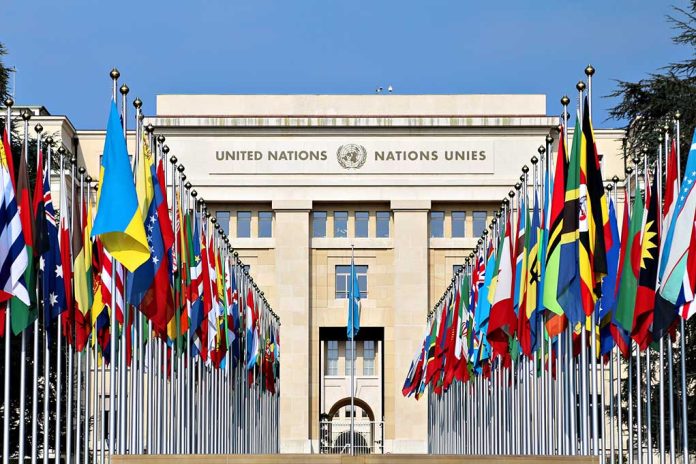
El Fasher, North Darfur, faces a humanitarian emergency as intense conflict threatens over 1.5 million lives.
At a Glance
- The UN General Assembly calls for immediate action to address the escalating crisis in Sudan.
- Sudan faces catastrophic hunger, displacement, and violence, with millions displaced.
- Health services are collapsing, and diseases are rising.
- The fighting has severely impacted civilians, with many trapped and in dire need of aid.
Humanitarian Crisis Worsening in El Fasher
The situation in El Fasher, North Darfur, is deteriorating rapidly as conflict between the Sudanese Armed Forces and the paramilitary Rapid Support Forces escalates. Over 1.5 million residents face the threat of severe starvation, violence, and displacement. The international community’s focus, especially at the United Nations General Assembly, is imperative to avert a large-scale humanitarian disaster. The conflict has caused immense suffering, with civilians bearing the brunt of the violence.
Since the outbreak of hostilities in April 2023, more than 10 million people have been displaced, with over 2 million seeking refuge in neighboring countries. The ongoing conflict has created the world’s largest hunger crisis, with nearly 26 million individuals facing acute food insecurity. Famine conditions have been confirmed in North Darfur’s Zamzam camp. The health infrastructure is decimated, and diseases such as cholera are on the rise. Schools remain closed for the second year, disrupting the education of countless children.
UN: 'Immediate action' needed to halt fighting in Sudan's Darfurhttps://t.co/8Y3YQkNJQO
— Voice of America (@VOANews) September 20, 2024
Escalating Violence and Humanitarian Needs
A new wave of fighting erupted in El Fasher on September 12, endangering hundreds of thousands of individuals. The conflict has resulted in appalling civilian suffering and risks triggering ethnic conflict and regional destabilization. Humanitarian efforts are hampered by underfunding, insecurity, and restricted access. Neighboring countries, already under-resourced, require additional support to assist the influx of Sudanese refugees.
“People in Sudan have endured 17 months of hell, and the suffering continues to grow. Thousands of civilians have been killed, entire communities displaced and deprived of food, families scattered, children traumatized, women raped and abused. Decisive international action is urgent. We need humanitarian access to everyone in need, through all necessary routes, ramped-up funding for the response, ironclad commitments to protect civilians, and most of all, real and inclusive steps to end this ruinous war.” – Joyce Msuya, Acting Under-Secretary-General for Humanitarian Affairs and Emergency Relief Coordinator
The 2024 Humanitarian Needs and Response Plan for Sudan seeks $2.7 billion but is only 49% funded. Similarly, the Sudan Regional Refugee Response Plan requires $1.5 billion but is only 25% funded. Immediate, substantial donor support is essential to meet these requirements. International aid organizations have called for rapid de-escalation, adherence to international humanitarian law, and increased funding from global donors to address the worsening crisis.
Sudan is facing most dramatic hunger crisis in its history with famine having reached parts of North Darfur.@UNOCHA and partners are providing urgent life-saving aid but more support and unrestricted secure access is needed to sustain the response.https://t.co/wis2YQFJv2 pic.twitter.com/YQeAaxq3VT
— United Nations (@UN) September 7, 2024
Calls for International Leadership and Intervention
The United Kingdom and other global leaders must prioritize the protection of Sudanese civilians at the United Nations General Assembly. The Security Council has expressed grave concerns for the welfare of civilians, urging a humanitarian pause and respect for arms embargoes. The failure to prevent further military escalation in El Fasher emphasizes the need for robust international intervention.
“The Security Council will be formally put on notice that the conflict in Sudan risks spurring the world’s largest hunger crisis,” said Akshaya Kumar, crisis advocacy director at Human Rights Watch
Swift and decisive action is necessary to halt the fighting and protect civilians. The international community must leverage its influence to mediate cease-fires and facilitate humanitarian access. Sustained global advocacy and funding are critical to addressing this humanitarian crisis and restoring stability to Sudan.
Sources
1. Global community to urge action on escalating Sudan crisis at UN General Assembly
2. Sudan: Urgent Action Needed on Hunger Crisis















